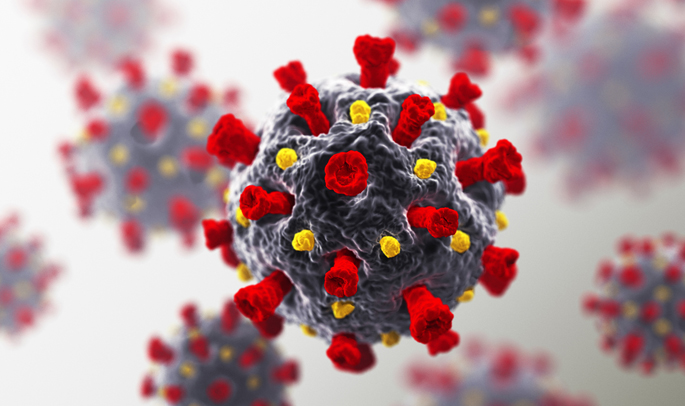Vanderbilt University Medical Center’s participation in Centers for Disease Control and Prevention (CDC) vaccine effectiveness research continues to grow, with the Medical Center playing critical roles in several networks focused on surveillance of vaccine-preventable respiratory diseases. Here’s a list of networks and projects, in reverse chronological order based on the year of VUMC’s first participation.
- Last year, VUMC became the ninth site to join the CDC’s VISION Vaccine Effectiveness Network. Sites from across the country contribute de-identified patient data used in estimating the effectiveness of vaccines for seasonal flu and COVID-19. The principal investigator for the Vanderbilt site is Peter Embí, MD, MS, professor and chair of the Department of Biomedical Informatics and Senior Vice President for Research and Innovation.
- Last year, VUMC launched the Virus and Infections in Essential Workers (VIEW) study, a large prospective cohort study of adult non-health care essential workers in Middle Tennessee. The study will assess the changing activity of COVID variants and the effectiveness of current and new vaccines in preventing viral infections in the community. The project is led by Carlos Grijalva, MD, MPH, professor of Health Policy, and Keipp Talbot, MD, MPH, associate professor of Medicine.
- In 2021, VUMC became the patient recruitment, data and laboratory coordinating center for the CDC’s new Respiratory Virus Transmission Network, designed to determine whether vaccines reduce transmission of influenza and COVID within households. Grijalva and Talbot, in addition to leading Vanderbilt’s participation, lead research subject recruitment and data and specimen collection strategies for the seven-site network.
- In 2019, VUMC investigators founded the CDC’s Investigating Respiratory Viruses in the Acutely Ill Network, evaluating the epidemiology of severe illness among adults with COVID-19, flu, and respiratory syncytial virus (RSV). With data, laboratory, and clinical coordination at VUMC, the network has enrolled over 30,000 patients at 24 sites across the U.S. and has produced over 50 published reports. The network’s findings include one of the first descriptions of long COVID; strong evidence of COVID-19 vaccines preventing severe COVID-19 and death; higher effectiveness of mRNA COVID-19 vaccines compared to vaccines that use older technology; the need for booster doses for COVID-19 vaccines to maintain effectiveness over time; and early evidence that bivalent COVID-19 boosters provide protection against omicron variants. Wesley Self, MD, MPH, associate professor of Emergency Medicine and Senior Vice President for Clinical Research, is principal investigator for the network; laboratory leads are Natasha Halasa, MD, MPH, and James Chappell, MD, PhD; statistical leads are Yuwei Zhu, MD, MS, and Kim Hart, MA; epidemiology leads are Grijalva and Talbot; programmatic leads are Adrienne Baughman, Kelsey Womack, PhD, and Jillian Rhoads, PhD.
- In 2000, VUMC became one of three original sites in the New Vaccine Surveillance Network, devoted to monitoring vaccine-preventable viral respiratory infections in children. Having expanded to eight sites, the network currently conducts surveillance of acute gastroenteritis and acute respiratory illness, and pools data for estimating flu vaccine effectiveness.VUMC’s participation was initially led by Kathryn Edwards, MD, the Sarah H. Sell and Cornelius Vanderbilt Chair in Pediatrics, and Marie Griffin, MD, MPH, professor of Health Policy, emerita. The current principal investigator for the Vanderbilt site is Natasha Halasa, MD, MPH, Craig Weaver Professor of Pediatrics.
- Established in 1995, the Emerging Infections Program is a CDC-sponsored network of 10 sites, each a collaboration between a state’s health department, academic institutions and other public health entities. For respiratory viral diseases such as COVID-19, flu, and RSV, the program provides timely assessments of disease severity and national disease burden, and EIP projects extend to evaluation of vaccine effectiveness for flu, COVID-19 and pneumococcal infection. Vanderbilt’s participation in the Tennessee site is led by Talbot, and was previously led by William Schaffner, MD, professor of Health Policy.
VUMC is a recent participant in two other CDC vaccine-effectiveness networks.
- VUMC was one of four sites in the CDC’s Hospitalized Adult Influenza Vaccine Effectiveness Network, which ran from 2015 to 2021, with Talbot as principal investigator for the Vanderbilt site.
- From 2008-2011, VUMC participated in the U.S. Influenza Vaccine Effectiveness Network, with Griffin serving as principal investigator for the Vanderbilt site. The network later expanded its focus to also include the effectiveness of COVID vaccines. Vanderbilt rejoined from 2021 through 2022, with Talbot and Grijalva serving as principal investigators for the Vanderbilt site.











